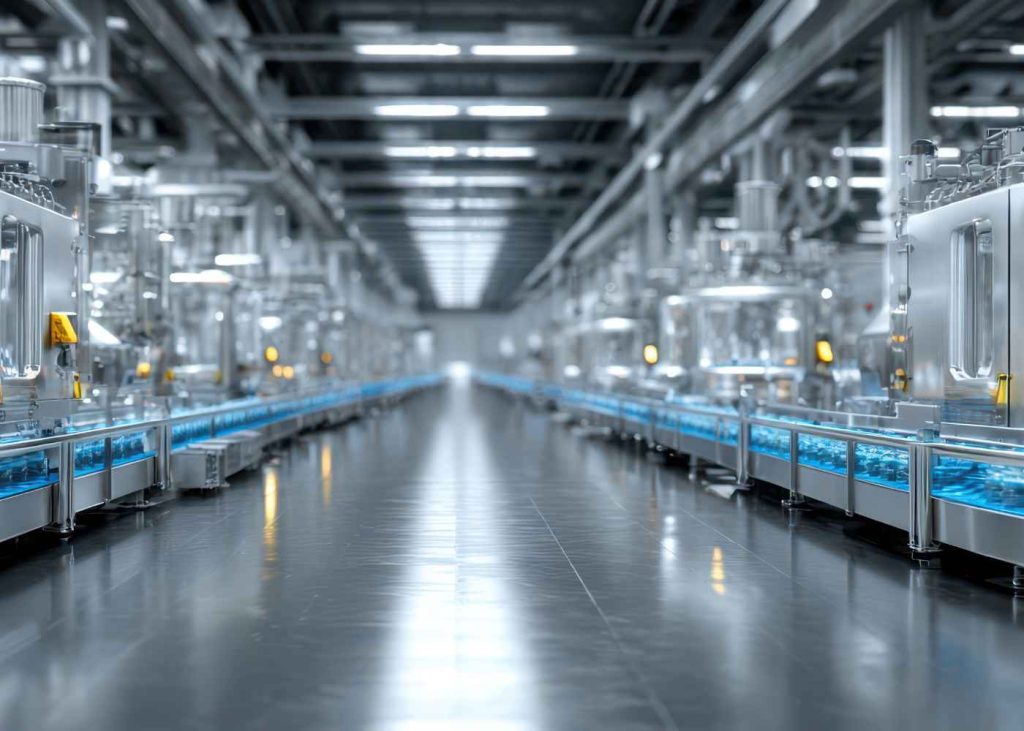In the rapidly evolving landscape of modern commerce, manufacturing, and logistics, standing still means falling behind. For businesses to achieve sustainable growth, they must move beyond traditional operational methods and embrace innovation. Advanced Industrial Solutions—which encompass everything from the Industrial Internet of Things (IIoT) and sophisticated automation to AI-driven predictive maintenance—are the essential drivers of this transformation.
These integrated technologies don’t just optimize processes; they fundamentally change a company’s capacity to innovate, reduce costs, and capture new markets. Here are five crucial ways advanced industrial solutions fuel meaningful business growth.
They Sharpen Operational Efficiency and Reduce Waste
The most immediate impact of advanced industrial solutions offered by companies like Ferguson Industrial Company is felt on the factory floor and across the supply chain. By implementing IIoT sensors and machine-learning algorithms, businesses gain unprecedented visibility into every operational stage. This allows them to identify and eliminate bottlenecks, inefficiencies, and waste that were previously hidden.
For example, real-time monitoring of machinery allows for dynamic load balancing and process optimization, ensuring assets run at peak capacity. Automated quality control systems using computer vision can instantly spot defects, drastically reducing material waste and lowering the cost of rework. By converting raw data into actionable insights, these solutions transform lean principles from an aspiration into a measurable, continuous reality, directly lowering production costs and boosting profit margins.
They Enable Predictive Maintenance and Maximize Uptime
Unexpected equipment failure is a massive drain on resources, causing costly downtime, delayed fulfillment, and damage to customer relationships. Advanced industrial solutions leverage AI and Big Data analytics to shift maintenance from a reactive (break-fix) model to a proactive, predictive one.
Sensors embedded in equipment constantly transmit data on vibration, temperature, and performance metrics. AI models analyze this streaming data for subtle anomalies that signal impending failure. This means maintenance can be scheduled precisely when needed, during planned downtime, before a catastrophic failure occurs. By maximizing equipment uptime and minimizing unplanned interruptions, businesses can maintain consistent production schedules, fulfill larger contracts reliably, and drastically reduce emergency repair expenses.
They Increase Manufacturing Flexibility and Customization
In today’s market, customers demand personalization and rapid fulfillment. Advanced industrial solutions provide the flexibility necessary to meet these dynamic demands without sacrificing cost efficiency. Modern robotics, collaborative robots (cobots), and modular manufacturing cells allow production lines to be quickly reconfigured to switch between products or handle customized batches.
This flexibility is crucial for market agility. Businesses can introduce new products faster, test market demand with smaller production runs, and handle highly customized orders that command premium pricing. This adaptability ensures the company remains relevant and responsive, turning the challenge of market volatility into an opportunity for growth through diverse product offerings and superior customer service.
They Improve Product Quality and Ensure Compliance
Consistent, high-quality output is essential for brand reputation and market expansion. Advanced industrial solutions embed quality control and compliance measures directly into the manufacturing process. Automated inspection systems use high-speed cameras and algorithms to verify product specifications with accuracy far exceeding manual checks.
Beyond quality, these systems provide an immutable digital trail, or digital thread, for every component produced. This detailed record of materials, processes, and inspection results is critical for regulatory compliance in industries like aerospace, pharmaceuticals, and food production. By reducing defects, increasing product reliability, and simplifying audits, these solutions safeguard the business against costly recalls and regulatory fines, supporting entry into new, highly regulated global markets.
They Drive New Revenue Streams Through Service Models
The implementation of advanced industrial solutions doesn’t just optimize internal processes; it often creates entirely new revenue opportunities by enabling service-based business models. Businesses can monetize the data collected from their smart products or assets by offering performance monitoring, predictive maintenance contracts, or usage-based financing.
For example, a traditional equipment manufacturer might transition to selling “uptime-as-a-service.” Instead of selling a physical machine, they sell guaranteed operational hours, using IIoT data to ensure delivery. This shift transforms a one-time product sale into a long-term recurring revenue relationship, deepening customer loyalty and providing a stable, predictable foundation for future business growth.
Final Thoughts
Advanced Industrial Solutions are the foundational technologies of the next industrial era. They represent a comprehensive strategy for growth, moving companies beyond incremental efficiency gains toward transformational performance. By maximizing uptime through predictive maintenance, slashing waste via real-time optimization, boosting responsiveness through manufacturing flexibility, safeguarding quality, and pioneering new service-based revenue streams, these solutions don’t just secure a company’s position—they aggressively propel it forward, ensuring long-term competitiveness and scalable business growth.


